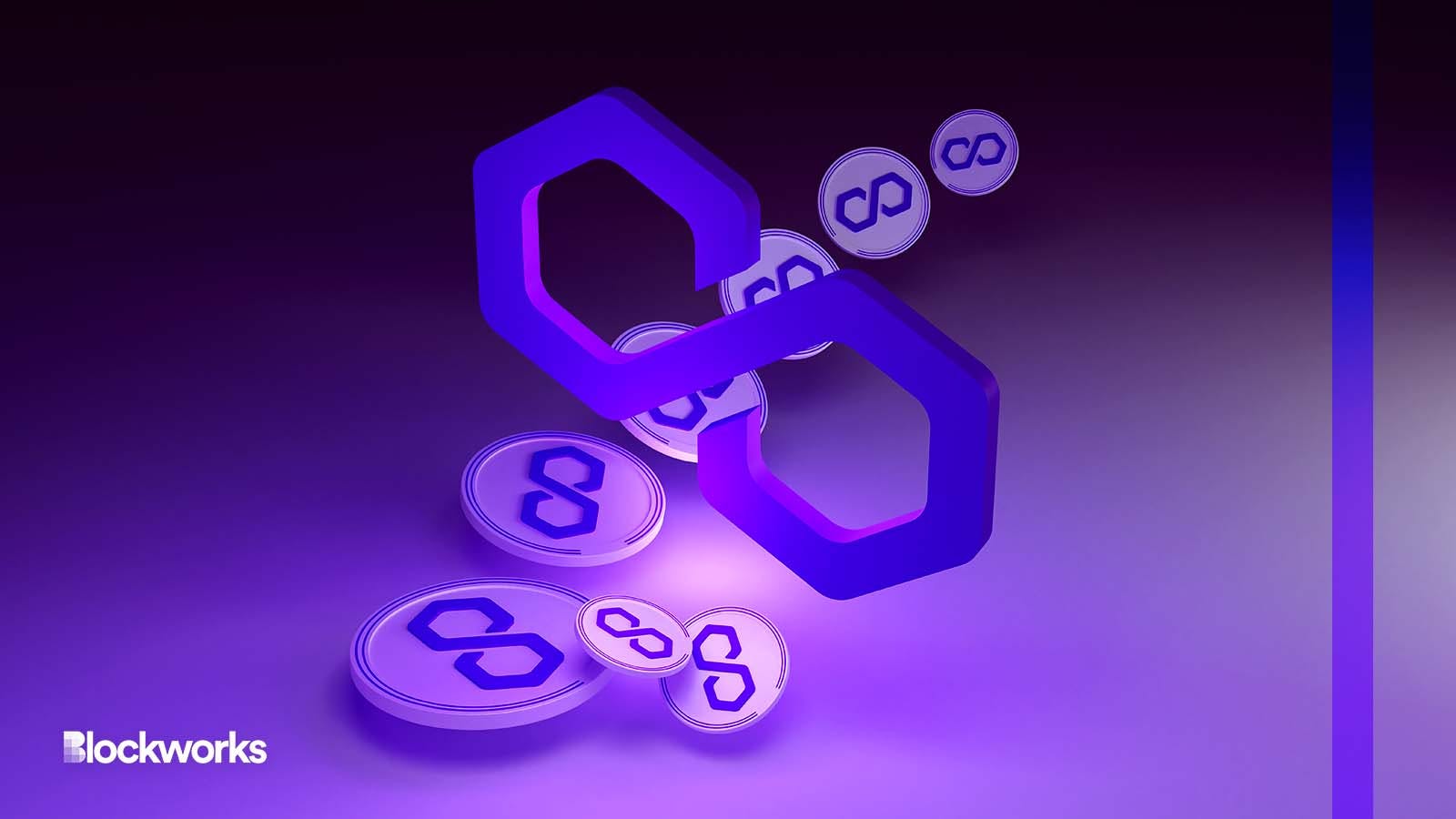Polygon wants to upgrade PoS chain to zkEVM validium
If the proposal is passed, Polygon PoS could transform into a zk-based layer-2 by early 2024, Polygon Labs says

CryptoFX/Shutterstock modified by Blockworks
After unveiling Polygon 2.0 last week, Polygon Labs introduced a proposal to upgrade its proof-of-stake chain to a zkEVM validium, which it says would improve security and performance.
With Polygon 2.0, its developers signaled their intention to capture the “value layer” of the internet. This proposal, they say, is an “important step” toward that goal.
With this proposed upgrade, the proof-of-stake, or PoS, chain now has a clear roadmap toward integrating zero-knowledge proofs into its infrastructure, a technology many believe is the future of smart contract blockchains. However, it’s important to note that this will be separate from Polygon’s zkEVM that it introduced in late March.
The proposal aims to tackle several problems faced by Polygon PoS, one of which is incredibly fast block times, which sounds like a positive. However, the speed ends up decreasing the efficiency of its gas estimation model, which sometimes causes gas price spikes, resulting in processing delays for users transactions.
The validium upgrade would fix that, as well as eliminate chain reorgs — a common problem on the Polygon PoS chain. The proposal says the PoS chain’s “legacy tech stack” based on forks of the Cosmos SDK for consensus and the Geth EVM execution client, implemented in 2020, is “suboptimal,” according to the proposal.
Using the Polygon’s zkEVM instead is the answer, the proposal argues. The current probabilistic consensus method will be scrapped in favor of a “decentralized validator/sequencer sets with deterministic, single block finality.”
In a blog post announcing the proposal, Polygon Labs described validium as “the lower-cost, higher-throughput sibling of a rollup.”
The chief difference, one which the proposal describes as a “downside,” is that validiums maintain data availability outside of Ethereum. Polygon downplayed this difference because it can leverage an existing decentralized validator set from the PoS chain staking of MATIC, Polygon’s native token.
Polygon Labs also told stakeholders that applications should remain operational and fees should stay just as low.
If consensus is reached among the community, implementation of the validium upgrade could happen by the first quarter of 2024, Polygon Labs said.
Get the news in your inbox. Explore Blockworks newsletters:
- The Breakdown: Decoding crypto and the markets. Daily.
- 0xResearch: Alpha in your inbox. Think like an analyst.






